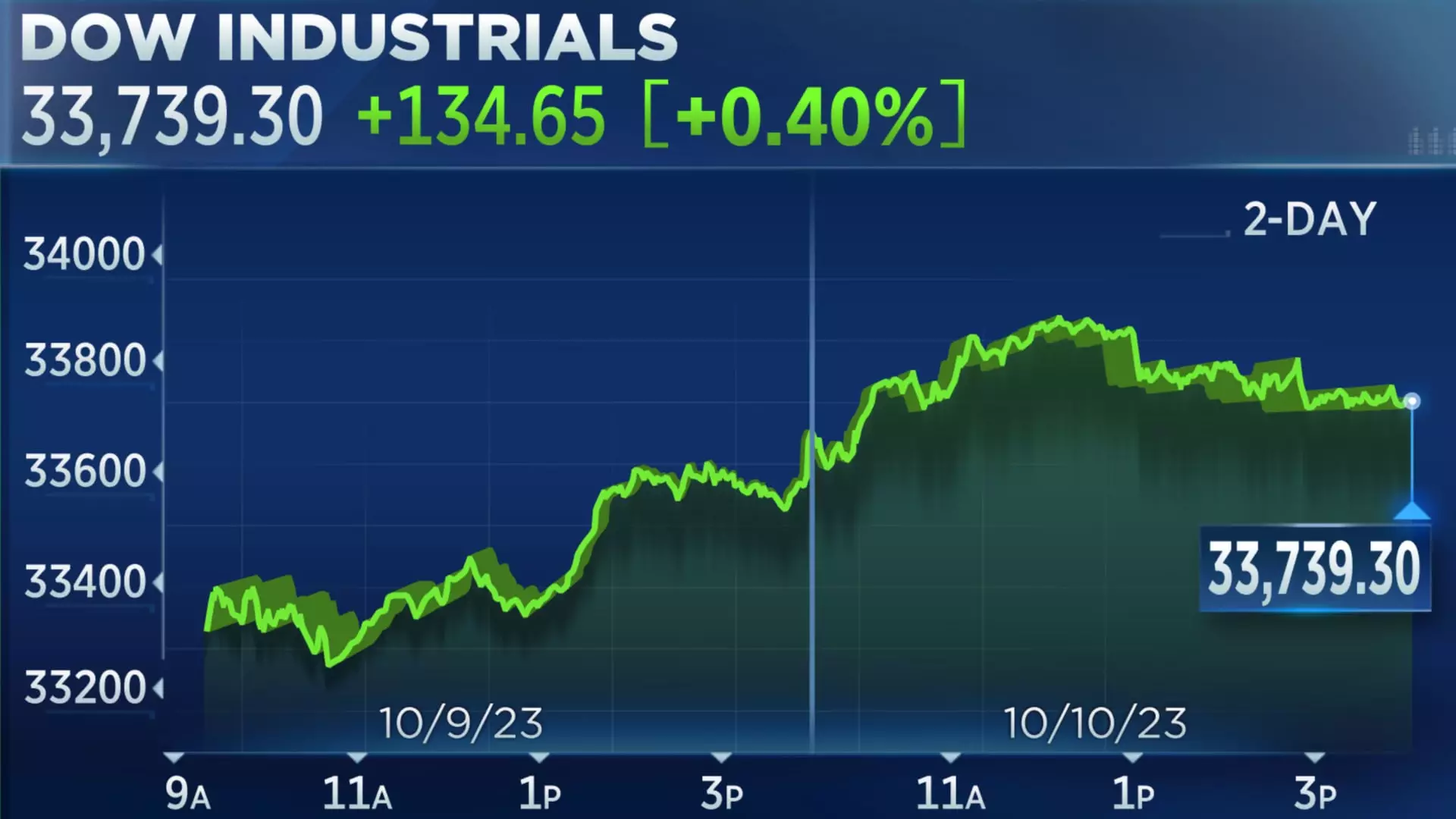The recent Israel-Hamas conflict has had a significant impact on the financial markets, particularly the U.S. bond market. On the first trading day after the conflict broke out, the benchmark 10-year Treasury yield fell nearly 13 basis points to about 4.65%. This decrease in yields was driven by investors seeking safe assets amid the growing geopolitical concerns. The reaction in the bond market was expected, as yields and prices move in opposite directions. However, it is worth noting that this initial reaction was to be expected, given the market’s closure on Monday for Columbus Day, which delayed the response.
In addition to the bond market, oil prices also experienced a brief easing after rallying in the previous session. This provided some relief to investors who had been concerned about the conflict. Falling bond yields and the temporary decline in oil prices contributed to a positive outlook among investors. Wall Street had been particularly worried about the rapid rise in interest rates, but the market responded positively to the decrease in yields. This relief was further bolstered by the stronger-than-expected September payrolls report and the overall optimism surrounding third-quarter earnings.
Mona Mahajan, Edward Jones senior investment strategist, expressed optimism about the impact of the decrease in yields on equity markets. She stated, “I think that move lower in yields has supported equity markets broadly. It may also be bringing relief to markets that perhaps there is some sort of peak in this rapidly upward moving yield in the last few weeks.” Mahajan further highlighted the hope building among investors that we are nearing the end of the Federal Reserve’s tightening cycle, signaling a potential slowdown in rising rates. This sentiment is likely to influence market behavior in the coming weeks.
Geopolitical Risks and Market Outlook
Although the conflict between Israel and Hamas poses significant geopolitical risks, investors have shown signs of looking past these concerns. The market rally on Tuesday seems indicative of investors shifting their focus towards other factors such as economic data and earnings reports. An important aspect to monitor will be the forthcoming inflation data, with the producer price index due on Wednesday and consumer price index set to release Thursday. These data points will provide further insight into the overall economic conditions and potential future market movements.
Interestingly, small-cap stocks performed well during the trading session following the conflict. The Russell 2000 index of small-capitalization companies and the S&P Small Cap 600 index both gained just over 1% each. The Russell’s five consecutive days of gains, which had not occurred since July, is a positive signal for the market. However, some investors caution against reading too much into the rally. Todd Jones, the chief investment officer at Gratus Capital, believes that the market’s positive reaction may be a result of already priced-in negative sentiment and oversold conditions.
While the overall market experienced a rally, specific companies also saw positive performances amidst the conflict. PepsiCo shares rose 1.9% after the company reported better-than-expected third-quarter results and raised its earnings outlook. Energy and industrial companies also continued their stretch into the green, with Enphase Energy rising 5% and Generac Holdings gaining 3.8%. These individual success stories in the face of geopolitical uncertainty demonstrate the resilience of some sectors in navigating challenging market conditions.
The Israel-Hamas conflict has undoubtedly had an impact on financial markets, particularly in the bond market and oil prices. However, investors have shown resilience and begun looking beyond the immediate risks posed by the conflict. The decrease in bond yields and positive market reactions suggest a growing sense of hope for the end of the Federal Reserve’s tightening cycle. Nevertheless, it is important to closely monitor upcoming economic data and earnings reports to assess the true extent of the conflict’s impact on the market’s outlook.


Leave a Reply